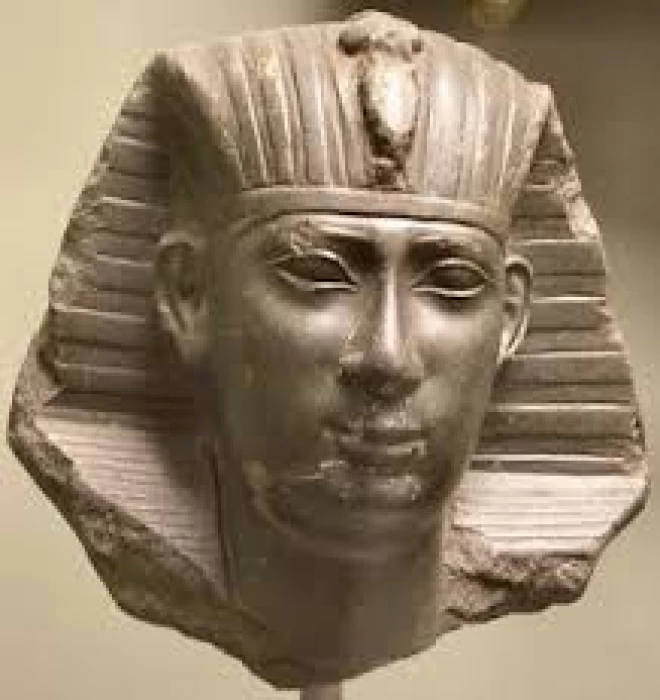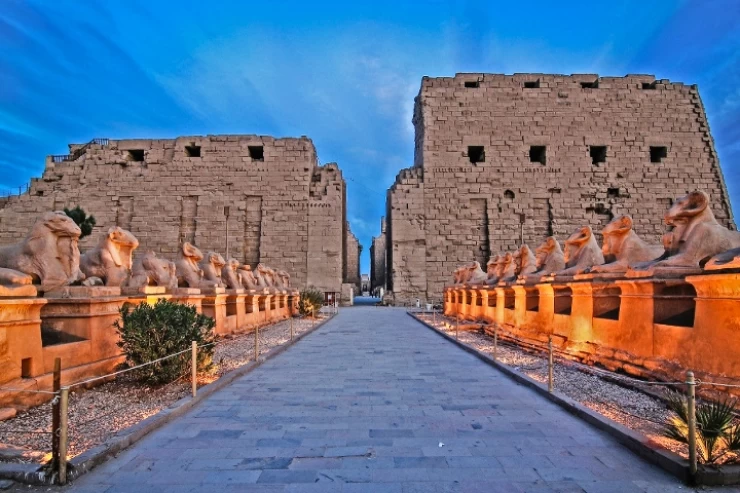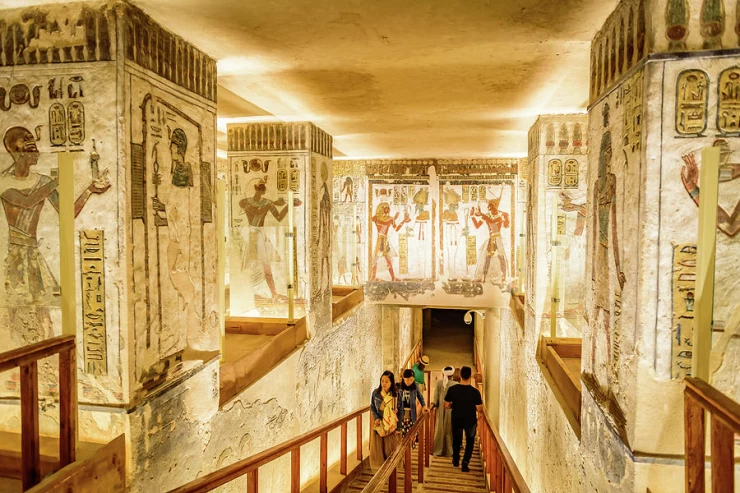
The 26th Dynasty in Ancient Egypt
The Twenty-Sixth Dynasty in Ancient Egypt
Among the chosen ones was a certain Neko, prince of Sais, perhaps a descendant of Piankhy's opponent, Tefnakht. Neko, however, had not been slow to rebel and had been deported to Nineveh with other prisoners.
Although Manetho places Psamtik I only as the fourth king, good historical reasons indicate him as the true founder of the dynasty. The name, apparently foreign, is instead Egyptian and means the "drink vendor", an expression that evidently has some relationship with the story of Herodotus according to which he had improvised a libation cup with his helmet.
Son of Psamtic I, Neko II was no less enterprising than his father but was less fortunate. His monuments in Egypt are few and singularly scarce in information. Herodotus remains the main source of news for his home businesses. A courageous attempt to connect the Nile to the Red Sea using a canal had to be abandoned, but it is almost certain that the Phoenician ships, sent by him to circumnavigate Africa, succeeded in returning after three years through the Columns of Hercules. This enterprise is still remembered today.
Died Neko II in 595 BC, was succeeded by his son Psamtic II, whose relatively short reign has often underestimated the importance. In reality, the monuments that name the king or his officials are much more numerous than those of the two predecessors, and a much-debated expedition to Nubia confers a particular interest in this kingdom. The news about this expedition derives mainly from a long epigraph, part of a group of Greek inscriptions engraved on one of the giants of Ramses II in Abu Simbel.
In 526 B.C, a few months after the death of Amasis, Cyprus broke the alliance with Egypt, setting off a real storm that fell on the head of Psamtic III. The latter, son of Amasis, went out of his way to ward off the end.
The battle of Peluso was fought with desperate tenacity (525 BC), but in the end, the Egyptians retreated in disorder to Memphis, which surrendered only after a long siege.
Thus Egypt passed into the hands of the Persians (27th dynasty of Manetho).
Latest Articles
Admin
Seabourn Sojourn Cruise Stops in Safaga Port
The Seabourn Sojourn, the flagship vessel of Seabourn Cruise Line's ultra-luxury fleet, was built in 2008 at the T. Mariotti shipyard in Genoa, Italy. Measuring 198 metres, it can accommodate up to 450 guests in its 225 spacious all-suite staterooms.
Admin
Norwegian Sky Cruise Stops in Safaga Port
Norwegian Cruise Line operates a cruise ship called the Norwegian Sky. It was constructed in 1999 and can accommodate 2,004 passengers in addition to 878 crew members. The ship has several dining establishments, lounges and bars, a spa and fitness center, swimming pools, and a number of entertainment areas.
Admin
Explora II Cruise Stops in Safaga Port
Explora II, the second vessel in the Explora Journeys fleet, sets sail in 2024 to redefine luxury cruising. With 461 ocean-front suites, 9 culinary experiences, and 4 pools, this haven of sophistication and sustainability promises an unforgettable "Ocean State of Mind" journey to inspiring destinations.
Admin
Mein Schiff 6 Cruise Stops in Safaga Port
The Mein Schiff 6 is the latest cruise ship in the renowned TUI Cruises fleet, offering passengers a luxurious and sophisticated cruise experience. At 315 metres long, this floating resort features a range of dining options, entertainment, and recreational facilities, including a spa, fitness centre, and sports amenities.
Admin
Mein Schiff 4 Cruise Stops in Safaga Port
When the Mein Schiff 4 cruise ship docks in Safaga, Egypt, passengers are granted access to a realm of ancient wonders. Aboard this state-of-the-art vessel, guests can embark on meticulously curated shore excursions that showcase the region's most iconic landmarks, including the Giza Pyramids, the enigmatic Sphinx, and the remarkable tombs and temples of the Valley of the Kings in Luxor.
Admin
MS Europa Cruise Stops in Safaga Port
The Silver Moon, Silversea's latest flagship, is a luxury cruise ship that offers an exceptional travel experience for Venezuelans exploring Egypt. With a capacity of 596 guests and an impressive 40,700 gross tonnes, the Silver Moon maintains the small-ship intimacy and spacious all-suite accommodations that are the hallmarks of the Silversea brand.















